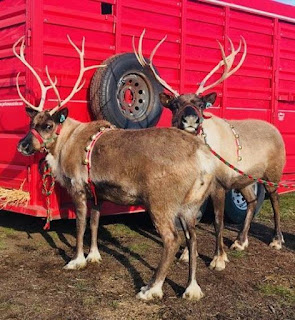 |
Photo Courtesy of Maddie Price,
Harvest Against Hunger. |
A food bank client in Kitsap County visited a local restaurant to thank the chef, who made soup they received at a local food bank during the pandemic shutdown.
The soup the client’s family received—made from scratch using locally grown, donated produce—was just a fraction of the 680 quarts of soup processed and distributed in the area from September 2020 to March 2021 through The Emergency Food Assistance Program (TEFAP) Farm to Food Bank grant.
The soup project was run by Kitsap Conservation District with support from the Olympic Community Action Program. They worked with local chefs who processed more than one ton of gleaned and donated vegetables into 25 different types of soups, which were frozen before distribution to food pantry clients.
The project provided access to healthy, ready-to-eat meals to food pantry clients, helped reduce on-farm food waste, and even kept a restaurant’s staff employed during the worst part of the shutdown.
TEFAP Farm to Food Bank projects, funded by the U.S. Department of Agriculture (USDA) through the 2018 Farm Bill, helps capture food from agricultural producers to distribute to food pantry clients, while also reducing food waste through partnerships with farms, gleaning operations, and others.
Another round of Farm to Food Bank grants opened on December 10 for public agencies, tribes, and nonprofit organizations for services provided from April 1 – October 31, 2022.
About the Farm to Food Bank program
With USDA’s TEFAP Farm to Food Bank funding, WSDA is able to support projects across the state that—like the one in Kitsap County—help with the harvest, processing, packaging, or transportation of unharvested, unprocessed, or unpackaged foods that are donated by agricultural producers, processors, or distributors. The food is then distributed by TEFAP emergency feeding organizations to food-insecure Washingtonians. These projects help build relationships between agricultural producers, processors, and distributors.
Year 1 results
In 2020, with little time to implement the program, WSDA prioritized projects with Farm to Food Pantry subcontractors who were already gleaning a tremendous amount of produce for food pantries and meal programs in rural areas, as well as areas identified as food deserts by the USDA.
In addition to the production of ready-to-eat soups in Kitsap County, Farm to Food Bank funded these activities in its first year.
Gleaning: Harvest Against Hunger, our Farm to Food Pantry partner, purchased and distributed harvesting materials, including collapsible produce crates, compostable produce bags, twist-ties, and electronic scales, to aid gleaning organizations that provide food to TEFAP food pantries and meal programs across the state.
- Refrigeration: Chelan Douglas Community Action Council purchased a refrigerated container and supported the installation of a walk-in refrigerator at Upper Valley MEND, a nonprofit that runs a food pantry and vibrant gleaning program in the heart of orchard country. These investments expanded access to freshly gleaned produce from just a few families to recipients across two counties.
- Weekly deliveries and centralized storage: The North East Washington Hunger Coalition made weekly produce deliveries to 15 food pantries across 260 miles. In partnership with Rural Resources Community Action Council they were able to purchase a refrigerated container along the delivery route to safely store donated produce between pickups or transfers to food pantries, reducing the time it takes to deliver perishable foods in this large service area. The funding also employed a dedicated gleaning coordinator.
Together, these projects captured more than 82,000 pounds of donated produce and aided the production of 1,400 pounds of processed soups that were distributed through TEFAP food pantries. Investments in building refrigerated capacity will help reduce waste for years to come.
Year 2 projects
In the program’s second year, 2021, WSDA opened a grant application period that was open to all of our current contractors. Year 2 projects include:
- Gleaning: WSDA continued to collaborate with Harvest Against Hunger to fund harvest supplies for qualified gleaning organizations. New items included produce washing stations, tree fruit harvesting bags, and more.
- Value-added processing support: Chelan Douglas Community Action provided harvesting supplies and funded gleaning coordinator salaries for their subcontractor, Upper Valley MEND. Due to staffing shortages, they were unable to pursue value-added processing by restaurants to the extent they had hoped. Instead, they purchased equipment to support in-house processing in the future.
- Pantry on the Go: Central Kitsap Conservation District was able to support a portion of their Pantry on the Go Program, a mobile food pantry that supplements TEFAP commodities with donated produce. The program provides food for seniors and people living in low-income housing in rural, underserved areas. They also partnered with Kitsap Conservation District to continue the soup project from Year 1.
Year 3 grant applications
The application period for the next round of Farm to Food Bank grants are open until January 31 for services that will be provided between April 1 – October 31, 2022. Grants will be a minimum of $30,000 with the total amount allocated $140,000.
The application is open to public agencies, tribes, and nonprofit organizations. For more details on qualifications and to apply, visit the TEFAP Farm to Food Bank Grants webpage. Email Nichole Garden at ngarden@agr.wa.gov for any questions about the TEFAP Farm to Food Bank grant.






